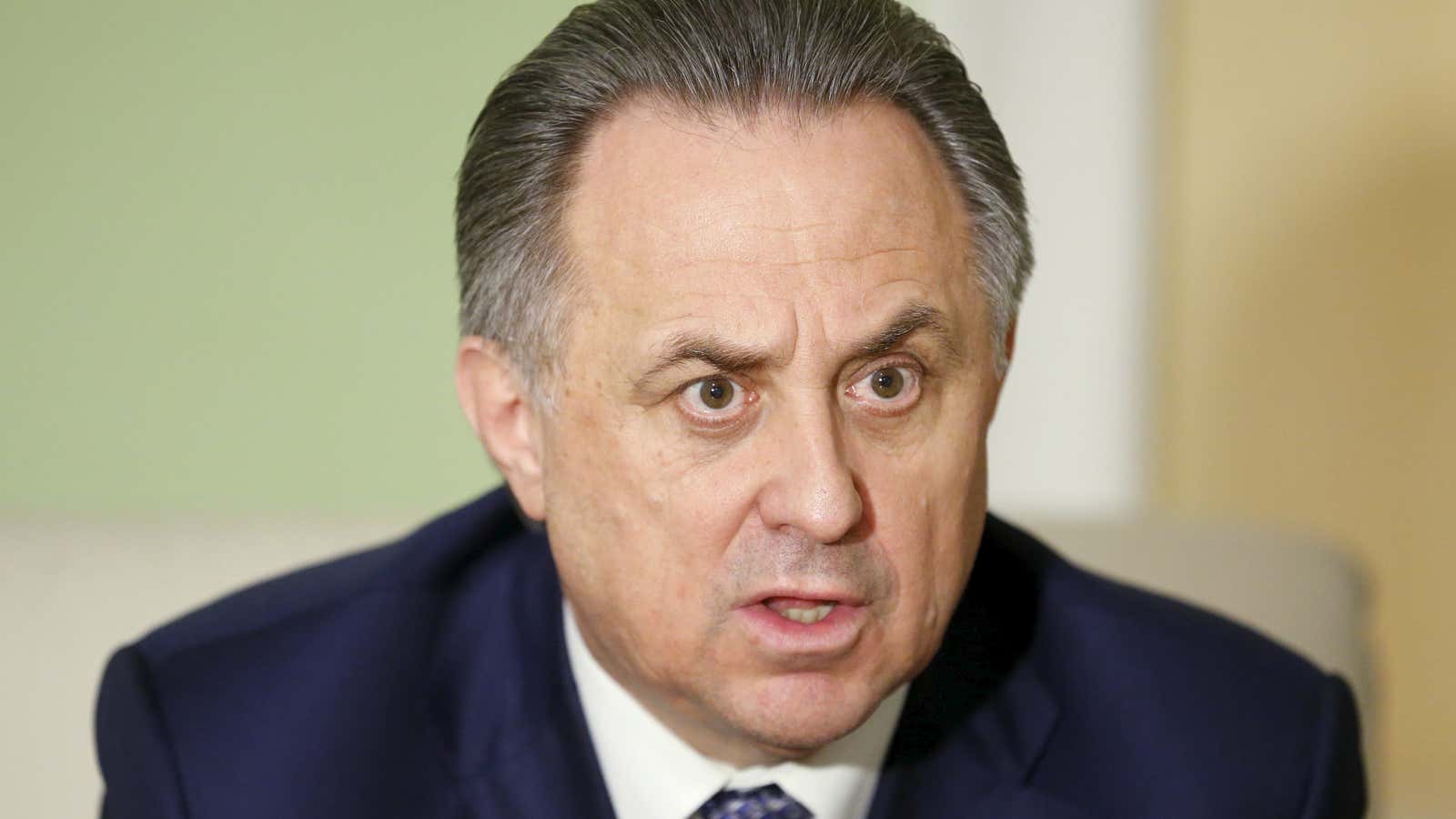Vitaly Mutko has many jobs. He is the minister of sport in Vladimir Putin’s government, the chairman of the organizing committee for the 2018 World Cup in Russia, a member of the FIFA executive committee, and also the head of Russia’s Football Union.
In juggling all of these powerful positions, Mutko has found himself at the center of two of the world’s biggest sports scandals: corruption in global soccer, and Russia’s doping scheme, which are now both being investigated by the US Justice Department.
The Russian cheating scandal, which emerged last year, has already landed Mutko in hot water. Russian track and field athletes were suspended by the International Association of Athletics Federations after a probe found evidence of a state-sponsored doping program. More recently, the former director of Russia’s anti-doping laboratory, Grigory Rodchenkov, said he oversaw widespread doping during the 2014 Winter Olympics in Sochi. Rodchenkov said he was carrying out orders from Mutko’s ministry of sport. The World Anti-Doping Agency (WADA) promised to investigate those allegations.
Russia is also expected to be among the 12 countries whose athletes tested positive for doping in the 2008 Beijing Olympics. Samples from those games were recently re-tested using new technology, the International Olympic Committee announced on May 17.
“Serious mistakes have been made by the federation management, along with athletes and coaches who have broken anti-doping rules and neglected the principle of fair play, so fundamental to sport, for immediate benefits,” Mutko wrote in a pseudo-apology in the Sunday Times (paywall) last weekend, referring to the 2015 suspension. “We are very sorry that athletes who tried to deceive us, and the world, were not caught sooner.”
Although Mutko declined to take ownership for the doping allegations, any apology from a Russian official is out of character, and suggests the country is adamant about getting its athletes to Brazil.
Mutko, who has been in FIFA’s power structures since 2009, has thus far avoided trouble related to the international probe into widespread graft within the association, although the process of awarding the 2018 World Cup to Russia has repeatedly been questioned. In 2015, both the FBI and Swiss authorities launched an investigation into the process. Mutko, an ally of embattled former FIFA head Sepp Blatter, said last year that Russia had nothing to fear and nothing to hide.
Mutko’s background is similar to that of Vladimir Putin, and Mutko has been a member of his boss’s inner circle for years. He climbed up the bureaucratic ladder in St. Petersburg, where he eventually was appointed deputy mayor. Mutko later chaired the city’s soccer club, and the country’s soccer association, and in 2008 was named minister of sport, tourism and youth policy by Putin.
FIFA and doping aren’t Mutko’s first scandals. At the 2010 Vancouver Winter Olympics, Russia won comparatively few medals, despite massive spending on the games. An audit later showed that Mutko ordered 97 breakfasts during his 20-day stay in Canada, at a cost of $4,500. His hotel bill was $32,000.
Despite his connections, Mutko has a somewhat goofy image in Russia, according to Tom Balmforth at Radio Free Europe. He speaks in heavily accented English that draws a “blend of endearment and embarrassment” among his compatriots, Balmforth says. But, behind that front is an “is an adept backroom operator who has displayed a knack for emerging unscathed from scandals.”
